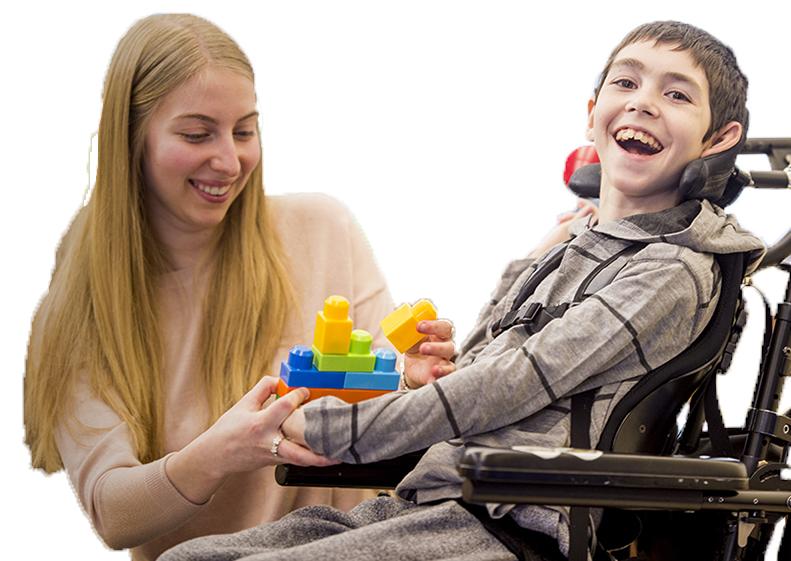Resources Directory
Search below to find a hospital, doctor, therapy, and more

Special Olympics, Kansas
Special Olympics Kansas is dedicated to empowering individuals with intellectual disabilities to become physically fit, productive and respected members of society through sports competitions, health and nutrition programs and leadership development. Offering year-round initiatives to children and adults with intellectual disabilities, Special Olympics Kansas is a platform for acceptance and inclusion as well as one of the largest advocates for healthy lifestyles in the state – regardless of race, religion, ethnicity or cultural differences.
Programs:
Healthy Athletes – In Kansas, Healthy Athletes provides SOKS athletes with free screenings in 5 areas, typically in conjunction with state competitions. Screenings are provided by local health care professionals who receive special training and volunteer their time and talents to benefit the athletes.
Disciplines
FUNFitness
Healthy Hearing
Health Promotion
Opening Eyes
Special Smiles
Shape-Up Kansas- is a program designed to increase the fitness level among SOKS athletes while encouraging them to develop healthy habits. Participants are expected to meet set goals while working with a Shape-up Coordinator (Training companion) who encourages them to exercise while also completing the necessary paperwork for the program. Special Olympics Kansas produces a monthly Health E-newsletter which is distributed to families, coaches, and local program directors. We understand by following a healthy lifestyle regiment athletes are better suited to live active longer and more active lives.
MEDFEST – In addition to Healthy Athletes screenings SOKS offers MedFest on an as-needed basis. MedFest is a free health screening that facilitates the acquisition of the standard sports physical that is required under the General Rules of Special Olympics, Inc. Volunteer physicians, nurses, physician assistants, and medical students, reviews medical history, height and weight, and blood pressure, in addition to providing the required cardiology test, musculoskeletal test, orthopedic tests, and abdominal evaluation. A health awareness and fitness information is also provided to the athletes.
YOUNG ATHLETES™ – is an innovative sports play program for children with intellectual disabilities, ages 3-7, designed to introduce them to the world of sports, prior to Special Olympics eligibility at age 8. The program focuses on the development of fundamental physical skills and the application of those skills through general fitness and recreational activities.
The Special Olympics Kansas (SOKS) program offers two levels of participation. The level one "Motor Skills" clinics focus on the development of motor skills and hand-eye coordination for participants, ages 3-7, while the level two "Little Feet" clinics teach children, ages 5-7, how to apply those physical skills through participation in soccer, track and field, and group exercises and activities. The program is offered in one hour sessions and parents and younger siblings are encouraged to participate. The activities are designed to be used by parents in the home or in a preschool/school environment, with a playgroup or in a one-on-one situation. Young, intellectually disabled children who participate in the Motor Skills clinics are provided with an activity kit, along with user friendly instructions, to take home and continue working on their skills with their families. The clinic activities consist of:
Foundational Skills
Walking & Running
Balance & Jumping
Trapping & Catching
Throwing
Striking
Kicking
Advanced Skills
Sports – Special Olympics Kansas offer year-round training and athletic competition in 21 Olympic-type sports to children and adults with Intellectual Disabilities. Participation is open to anyone ages 8 and older, and programs are designed to serve all ability levels. 21 OFFICIAL SPORTS IN KANSAS:
Alpine Skiing, Athletics, Aquatics, Basketball, Bocce, Bowling, Cheerleading, Cross Country, Cycling, Equestrian, Figure Skating, Floor Hockey
Golf, Gymnastics, Powerlifting, Snowshoeing, Soccer, Speed Skating, Softball, Tennis, Volleyball.
Athlete Leadership Programs- (ALP's) – allow athletes to explore opportunities in roles previously considered "non-traditional". Such participation might come in the form of an athlete serving on the Board of Directors or local organizing committee; or it might find an athlete as a spokesperson, team captain, coach or official. Participation in Athlete Leadership Programs may be in addition to or in place of participation in traditional athlete roles.
The Global Messenger program – is designed to teach Special Olympics athletes how to speak in public in front of a variety of audiences. The program pairs a Special Olympics athlete with a speech coach. Coaches learn how to help the athlete prepare a speech to address various types of public groups and corporate audiences on a variety of topics related to Special Olympics.
Participants must possess a willingness to speak in a public forum and feel comfortable before an audience. The abililty to read is helpful but not mandatory. After completing the training course, Global Messengers are expected to go out into their community and speak to service groups, the corporate community and/or other organizations promoting Special Olympics.
Project Unify – The overall purpose of Project Unify is to promote school communities, at all levels, where all young people are agents of inclusion, respect, dignity and advocacy toward people with intellectual disabilities. The Program serves as a basis for establishing a sustaining program nationally to support children, youth and young adults with intellectual disabilities, as they become part of the fabric of the educational community. Today' s youth will gain knowledge and develop a better attitude and commitment to working on behalf of people with intellectual disabilities. As a consequence, the lives of all students will be greatly enhanced in school and beyond.
Please visit our website or Contact us for more information:
